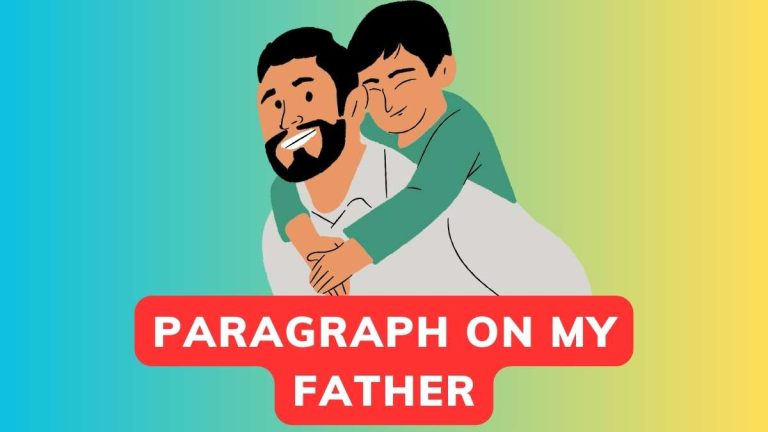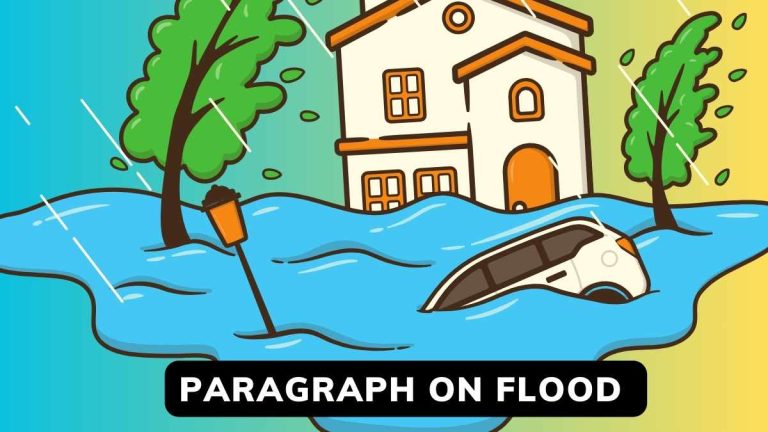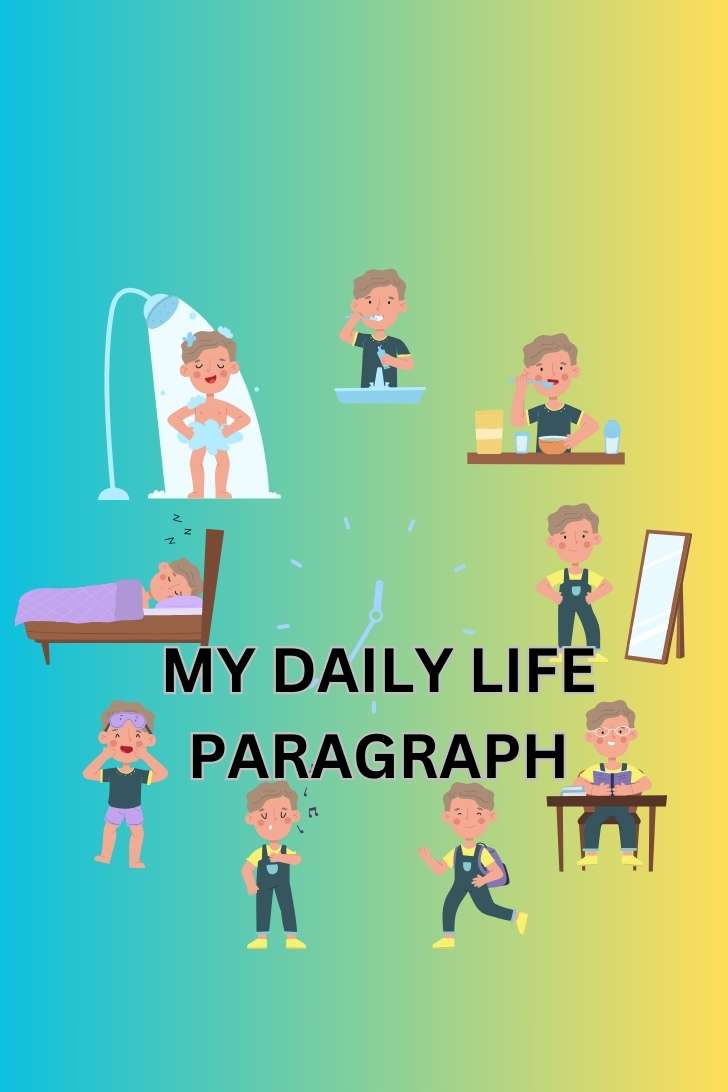

Paragraph On Diwali in English For Class 2-8 & 100-200 Words
Paragraph on diwali for class 2.
Diwali is a special festival that lights up our hearts and homes. It is known as the festival of lights. On this day, we remember the story of Lord Rama, who returned home after a long journey. People were so happy to see him that they lit up the whole city with tiny lamps called diyas. During Diwali, we clean our houses and decorate them with colorful lights and rangoli, which are beautiful patterns made on the floor with colored powders.
Families come together to share sweets, wear new clothes, and enjoy fireworks. We also light candles and diyas to fill our homes with warmth and brightness, showing our happiness and spreading cheer. This festival teaches us about goodness, bravery, and the importance of family and friends. It is a time of joy, where we share gifts with loved ones and make happy memories. Diwali brings a message of hope, reminding us that light always wins over darkness.
Paragraph On Diwali For Class 3
Diwali is a very special festival that people in India and some other countries celebrate with lots of joy. It is known as the “Festival of Lights” because everyone lights up lamps and candles. These lights make everything look beautiful and bright. Diwali comes in the autumn season every year.
The festival lasts for five days. On Diwali, families clean their homes and decorate them with colorful rangolis. A rangoli is a pretty pattern made on the floor using colored powders or flowers. It is a happy time when people wear new clothes, share sweets with family and friends, and enjoy fireworks. Fireworks light up the sky and everyone loves watching them.
Diwali has a story behind it. It celebrates the day when Lord Rama came back home after defeating a bad king named Ravana. To welcome him back, people lit lamps. That’s why we light lamps on Diwali too. It reminds us that good always wins over bad and light will always shine through the darkness.
On this day, people also pray to Goddess Lakshmi and Lord Ganesha. They ask for blessings of wealth, happiness, and wisdom. Kids especially enjoy Diwali because of the sweets, new clothes, and the fun of bursting crackers, but they are also taught to be safe and to take care of the environment.
In short, Diwali is a festival that brings everyone together to celebrate goodness, light, and happiness. It’s a time for fun, family, and friends, and it fills our hearts with joy.
Paragraph On Diwali For Class 4
Diwali, often called the Festival of Lights, is a beautiful and joyous occasion celebrated by millions of people around the world. It’s a time when families clean their homes and decorate them with colorful lights and patterns called rangolis. The festival marks the return of Lord Rama to his kingdom after defeating the evil king Ravana, symbolizing the victory of good over evil and light over darkness.
People light small lamps called diyas and set off fireworks to light up the night sky. It’s also a time for sharing delicious sweets and exchanging gifts with family and friends. Diwali is not just about the external lights and sweets; it teaches us to light the lamp of kindness within us and share happiness with others.
During Diwali, special prayers are offered to Goddess Lakshmi and Lord Ganesha for wealth, prosperity, and wisdom. The festival lasts five days, each with its own significance, and brings joy and excitement to everyone involved.
For families, Diwali is a time to come together, celebrate, and create memories that last a lifetime. It reminds us of the importance of kindness, sharing, and the joy of being with loved ones. So, Diwali is not just a festival; it’s a time that brings light, happiness, and warmth into our lives.
Paragraph On Diwali For Class 5
Diwali, often called the Festival of Lights, is one of the most eagerly awaited celebrations in many parts of India. It is a time when the whole country sparkles with lights and joy. Imagine a dark night turned into daylight, thanks to thousands of tiny oil lamps, called diyas, twinkling in homes and streets. This festival, celebrated in October or November, marks a special occasion where we remember the victory of good over evil.
The story behind Diwali comes from old Indian tales. One popular story tells us about Lord Rama’s return to his kingdom after defeating the demon king Ravana. To welcome him back, people lit lamps, symbolizing light’s victory over darkness. Another tale speaks of Goddess Lakshmi, who brings wealth and prosperity. On Diwali night, people clean their houses to welcome her, hoping she will visit and bless them.
Diwali lasts five days, each with its own significance and ways of celebration. Families get together, clean their homes, and decorate them with rangoli—a form of art made on the ground using colored powders. They also share sweets and gifts with loved ones, wear new clothes, and enjoy fireworks, although many now choose quieter, eco-friendly ways to celebrate to protect the environment.
On Diwali night, a special prayer is offered to Goddess Lakshmi to ask for her blessings. The lighting of diyas and fireworks represents the light within us, reminding us to be good and kind-hearted. It’s a time of joy, sharing, and remembering that light will always overcome darkness.
For many, Diwali is not just about the external lights and fireworks but about reflecting on our inner light. It’s a time for new beginnings, to forgive and forget, and to make new resolutions. Celebrating Diwali teaches us about the importance of family, kindness, and the joy of giving. So, as we enjoy the sweets, lights, and festivities, let’s remember the true spirit of Diwali and carry it in our hearts throughout the year.
Paragraph On Diwali For Class 8
Diwali, often termed the Festival of Lights, marks a joyous time celebrated by millions across the globe, particularly in India. This festival, deeply rooted in Hindu mythology, symbolizes the triumph of light over darkness and good over evil. According to legend, it commemorates Lord Rama’s return to his kingdom Ayodhya after defeating the demon king Ravana, a story that teaches us the power of righteousness and bravery.
The celebration stretches over five days, with each day having its own significance and set of rituals. It begins with Dhanteras, followed by Naraka Chaturdashi, the main Diwali night, Govardhan Puja, and concludes with Bhai Dooj. Families prepare by cleaning their homes, signifying the removal of any negativity to make space for positivity and prosperity. Homes are adorned with vibrant rangolis, and lights, mainly diyas (earthen lamps), illuminate every corner, reflecting hope and happiness.
An essential part of Diwali is the worship of Goddess Lakshmi and Lord Ganesha, invoking blessings for wealth, wisdom, and prosperity. The evening sky dazzles with fireworks, a vibrant display that delights everyone but also brings to light the importance of celebrating responsibly to minimize environmental impact.
Exchanging sweets and gifts strengthens bonds among families and friends, encapsulating the essence of community and togetherness. Despite its religious origins, Diwali’s message of light conquering darkness resonates universally, making it a celebration that crosses cultural boundaries, promoting peace and harmony.
In conclusion, Diwali encourages us to reflect on our inner light and the importance of good deeds. It’s a time for renewal, to cherish the joys of life, and foster kindness, making it a festival that not only illuminates our homes but also our hearts.
Paragraph On Diwali 100 Words
Diwali, a vibrant festival of lights, is celebrated with immense joy across India, marking the triumph of light over darkness and good over evil. It commemorates Lord Rama’s return to Ayodhya after defeating Ravana, symbolizing victory and righteousness. During this five-day festivity, people illuminate their homes with oil lamps, adorn entrances with colorful rangolis, and exchange sweets and gifts, fostering unity and warmth. Worship of Goddess Lakshmi is a key ritual, inviting prosperity and wealth. Despite its traditional fanfare with fireworks, there’s a growing emphasis on eco-friendly celebrations to preserve the environment. Diwali thus stands as a testament to cultural richness and shared jubilation, embodying hope and renewal.
Paragraph On Diwali 150 Words
Diwali, often termed the Festival of Lights, holds a cherished spot in the heart of Indian culture. Celebrated widely across India and by Indian communities globally, it marks a period filled with light, joy, and festivity. Rooted in ancient Hindu mythology, Diwali commemorates the return of Lord Rama to Ayodhya after defeating the demon king Ravana, symbolizing the victory of good over evil and light over darkness. This festival is celebrated during the lunar months of Ashvin and Kartika, typically falling between October and November.
The preparation for Diwali includes cleaning homes, decorating spaces with colorful rangoli designs, and lighting oil lamps or diyas. These acts represent the purification of the heart and home, inviting prosperity and well-being. People also worship Goddess Lakshmi and Lord Ganesha to seek blessings for wealth and wisdom. The exchange of gifts and sweets among friends and family reinforces bonds of love and community spirit.
In recent years, awareness around the environmental impact of Diwali celebrations has led to a shift towards more eco-friendly practices. This includes using biodegradable materials for decoration and minimizing the use of firecrackers to reduce pollution. Through these evolving traditions, Diwali continues to embody the timeless essence of joy, light, and communal harmony.
Paragraph On Diwali 200 Words
Diwali, often hailed as the Festival of Lights, stands out as one of the most vibrant celebrations in the Indian cultural mosaic. At its core, this festival epitomizes the triumph of light over darkness and goodness over evil. Traditionally falling between October and November, Diwali marks a period of festivity that brightens homes and hearts across India and beyond. The celebration commences with Dhanteras, a day dedicated to prosperity, followed by Naraka Chaturdashi, which commemorates the vanquishing of the demon Narakasura. The pinnacle of Diwali is the worship of Goddess Lakshmi, symbolizing wealth and well-being, alongside Lord Ganesha, who represents wisdom and removal of obstacles. Families unite to adorn their dwellings with luminous diyas, colorful rangolis, and strings of electric lights, transforming neighborhoods into enchanting realms. The exchange of sweets and gifts fosters a spirit of sharing and community. In recent years, there’s been a mindful shift towards eco-friendly celebrations, underscoring the importance of safeguarding the environment while upholding traditions. Diwali thus not only illuminates the physical world but also ignites a light within, encouraging reflection, gratitude, and a recommitment to righteousness in life’s perpetual battle against darkness.
Similar Posts


Summer Vacation Paragraph For Class 2-10
Summer Vacation Paragraph For Class 2 Summer vacation is a special time for students, providing a break from school and opportunities for various activities. During this time, students can engage in fun activities like making cool dishes and drinks with their families, such as sherbet and lemonade, to beat the summer heat. Additionally, summer vacation…

Environmental Pollution Paragraph 100,-300 Words And Class 7-10
In an age where the health of our planet is more crucial than ever, the issue of environmental pollution takes center stage, demanding immediate and comprehensive action. This omnipresent threat, stemming from human activities, not only endangers our own health but also the very ecosystems we rely on. By exploring the depths of environmental pollution…

Paragraph On Water in English Class 1-10
Paragraph On Water For Class 1 Water is a special substance that covers much of the Earth’s surface. It can be found in oceans, rivers, lakes, and even in the air as vapor. Water is very important for all living things, including plants and animals. It helps us stay healthy and grow big and strong….

Paragraph On My Father in English For Class 1-10
Paragraph On My Father For Class 1 My father is my hero. He is a very kind person who loves me a lot. He works hard to take care of our family. Sometimes he is very busy, but he always makes time for me. My father teaches me many things and helps me learn new…

Paragraph On Flood in English 100,150,200 Words
Paragraph On Flood For Class 6 Floods, while often viewed negatively, can actually bring about both positive and negative impacts on the environment and communities. On the downside, floods can cause significant damage to infrastructure, homes, and agriculture, leading to economic losses. However, there are also positive aspects to consider. Floods can recharge groundwater, enrich…

My Daily Life Paragraph 150, 200,250 Words
Imagine the gentle, yet persistent tug of daily routines and the unexpected adventures that lie hidden in the ordinary. Most would agree that within the framework of our daily schedules lies a rich tapestry of experiences, both mundane and extraordinary. By promising an intimate glance into the ebb and flow of my day-to-day existence, I…
Leave a Reply Cancel reply
Your email address will not be published. Required fields are marked *
Save my name, email, and website in this browser for the next time I comment.
- Kids Learning
- English Essays for Kids
- Diwali Essay
An Essay On Diwali
Diwali is one of the most popular festivals of Hindus which is celebrated with great fervour and delight. Children have a great time when they are asked to write an essay on Diwali as they get an opportunity to share their joyful experiences about the festival. Youngsters usually love this festival as it brings a lot of happiness and delightful moments for everyone. They get to meet their family, friends and relatives and share greetings and gifts with their loved ones.
Download “An Essay On Diwali” PDF for Free
An essay on Diwali in English helps children to express their views and convey their feelings about the essence of the auspicious festival. Your children can check the essay on Diwali festival given below and try writing a few lines on this topic to express or share their personal experiences about the holy festival.
Here’s a short essay on Diwali for young learners to refer to while drafting an essay on their own:
“Diwali, also known as ‘Deepavali’ (a row of lamps), is one of the most fervently celebrated festivals of India. Diwali is often called the ‘Festival of Lights’, and is celebrated by lighting lamps, and bursting crackers and fireworks. It is a festival which commemorates the victorious return of Lord Rama to Ayodhya after saving his wife Sita from the demon king Ravana. This religious festival represents the triumph of good over evil and light over darkness.
People all over India celebrate Diwali by lighting earthen oil lamps and decorating their houses with lights of different colours and sizes. All these lights transform streets across India into a mesmerising sight to behold. Kids celebrate the occasion by bursting crackers and different fireworks like sparklers, rockets, flower pots, fountains, peony fireworks, etc.
Diwali falls on the 20th day after the festival of Dussehra, usually in October or November every year. Families and friends visit each other, exchange gifts, and share delicious food to celebrate the occasion. Goddess Lakshmi, the goddess of wealth, is also worshipped on the occasion.
In recent years, the use of crackers and fireworks has come down dramatically as it contributes to air pollution and noise pollution, especially in cities where you hear a cracker bursting every other second. There are also safety issues concerning the use of fireworks, especially by children. So let us celebrate this festival of lights with more care and responsibility.”
We hope the above essay for Diwali festival English proves beneficial for young learners who wish to compose an essay on this topic. We have made a modest attempt from our end to justify the essence of the auspicious Diwali festival in the essay given above. Kids can pick some ideas from this sample essay on Diwali and draft a few lines and learn how to frame sentences and enhance their English writing skills simultaneously.
For more such engrossing essay topics , you can check our Kids Learning page and make learning a fun experience for your little one.
Register with BYJU'S & Download Free PDFs
Register with byju's & watch live videos.
